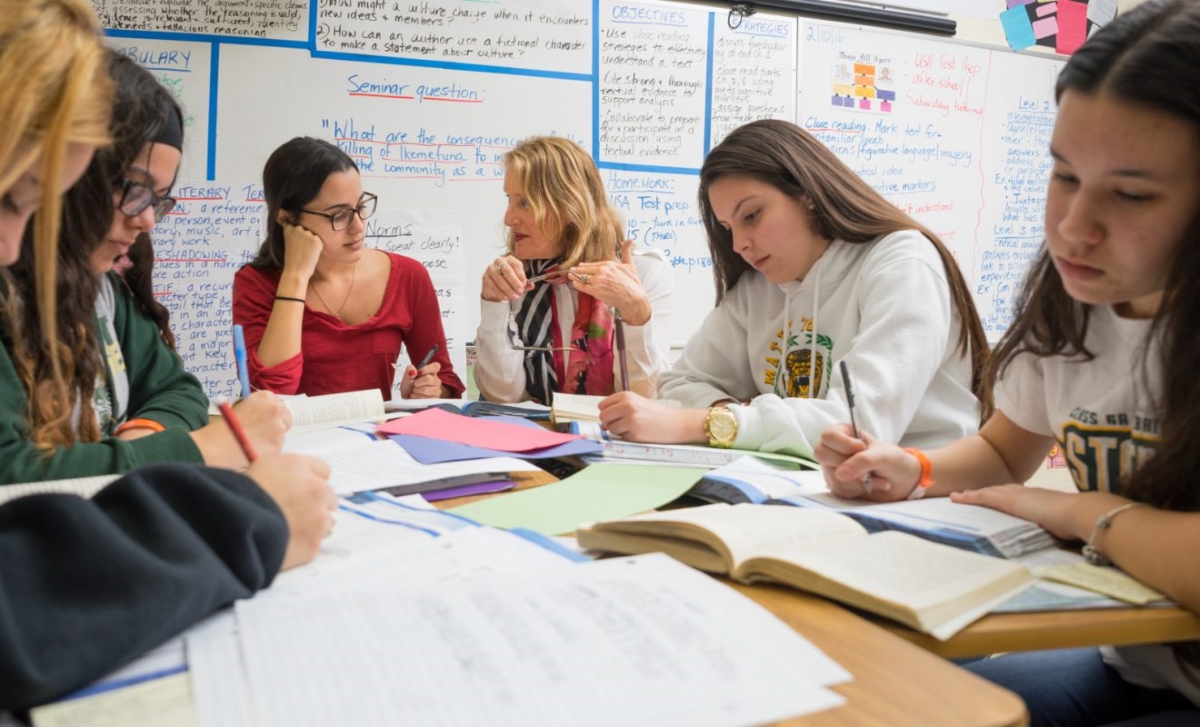Recent studies have shown that what the family does is more important to a child’s school success than how much money the family makes or how much education the parents have. This, in other words, means that parents can play a vital role in helping teens succeed in school by being informed and offering support and guidance, especially in secondary education which can be one of the most challenging learning experiences.
Fortunately, there are many ways in which parents can support their teens learning at home. We have rounded up the 5 most effective ones to help them make it throughout the school year less stress-free.
Utilize Study Guides

First and foremost, one of the most effective ways to nail that test is with helpful and comprehensive study guides. Besides helping your teenager to get a better grade, these are also some of the most effective tools for promoting long-term knowledge. These textbooks facilitate learning in a particular area or are resources that foster comprehension of literature, research topics, history, and other subjects.
Think of a study guide as an objective or a little outline that should assist you in synthesising and summarising material. It is particularly beneficial for difficult or complex concepts or subject areas. The fundamental benefit of utilizing it is that it decreases the amount of information to be learnt.
Any good study guide should consist of levels that bring confidence and success to lower-ability pupils, while also offering more difficult levels to extend to students who already have a good grasp of the basic concepts. It should also offer passages with a diverse variety of text types and questions. There should be an invaluable literacy explanation throughout the book. User-friendly and flexible for students and educators, these helpful textbooks should come with clear and comprehensive coverage and quick solutions at the end as well.
Depending on the material they cover, secondary study guides may organize the information differently. For instance, a Math study guide for secondary school may contain a section of easier, average and harder questions as well as problem-solving and extension questions section.
Such organised study guides are extremely valuable to parents since they will provide them with a well-structured and clear understanding of the new syllabus and what their children should know by the end of Year 8. If their child has a specific problem (say, adding fractions), it is quite simple to locate the page and explanations relevant to that concept – and therefore assist their child.
Support Homework Expectations
During secondary school, schoolwork becomes more difficult, and grades become increasingly important for college plans. This is the age when many teenagers are discovering how to juggle schoolwork, extracurricular activities, social lives, and employment.
Make sure your kid has a peaceful, well-lit, distraction-free study area that is stocked with supplies. Distraction-free means no phone, television, or websites other than homework-related ones. Check-in on your teen from time to time to ensure that they are not distracted.
Discuss class loads with your child regularly to ensure they are balanced and assist them keep to a homework and study plan. Encourage your teen to ask for support when they need it. Most teachers are accessible for extra help before or after school, and they may be able to identify additional resources.
Offer Help with Studying

Helping your teen study while handling numerous topic assignments requires careful planning. Grades are important in high school, so studying ahead of time is essential for success, especially if your child is involved in extracurricular activities.
When there is a lot to study, help your kid break down chores into smaller portions and stick to a study calendar timetable so they don’t study for many tests in one night. Encourage your teen to take notes in class, organise them by subject, and review them at home.
If your teen’s grades are good, they may not require more study assistance. However, if grades start to decline, it may be time to intervene. Most parents still need to help their teens with organisation and studying; don’t assume that just because they’re in secondary school, they can do it themselves.
Help Them Develop Organizational Skills
Learning and mastering the abilities of organisation, focus, and perseverance will benefit teenagers in almost every aspect of their lives. Parents can assist students organise their coursework and manage their time effectively.
You can also assist teens in organising assignments and class information in subject-specific binders, notebooks, or folders. Making a calendar will help your kids recognise looming deadlines and arrange their time effectively. Don’t forget to have your teen add non-academic commitments to the calendar.
Take the Attendance Seriously
Teenagers should take a sick day if they have a fever, nausea, vomiting, or diarrhoea. Otherwise, they must arrive at school on time every day, as catching up can be stressful and disruptive to learning.
Teens may not want to attend school for a variety of reasons, including bullying, difficult tasks, low grades, social problems, or disagreements with classmates or professors. Talk with your teen and possibly with an administrator or school counsellor to learn more about what’s causing the stress. Moreover, students may also be late for school due to sleep issues. Maintaining a consistent daily sleep routine for your teen can help him or her avoid being weary or tardy.

Leave a comment